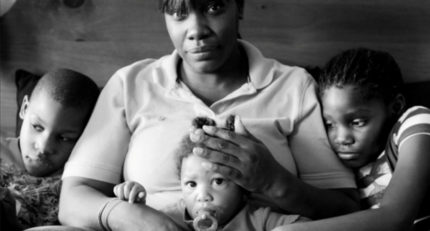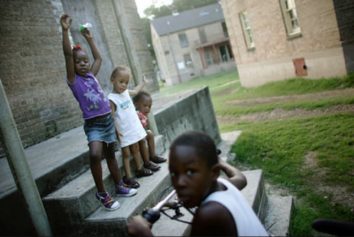
The researchers tracked a group of 800 schoolchildren in Baltimore over the course of three decades, until they turned 28. They found that not only did the poor children stay poor, but just 4 percent of the disadvantaged students graduated from a four-year college. The vast majority returned to their poverty-stricken neighborhood after school and are still poor.
The researchers have compiled their troubling results in a book, The Long Shadow, that was released last month.
“Kids who grew up in low-income distressed neighborhoods on average had lower levels of completed schooling, lower-status jobs and lower earnings as young adults,” professor Karl Alexander, one of the researchers behind the landmark study, told Al Jazeera Ameria.
The researchers found that of the nearly 800 children originally surveyed, only 33 moved from birth families in the low-income bracket to the high-income bracket as young adults. They found that the children who started out in the middle-class were more likely to move up.
In addition, race played a pivotal role: Forty-five percent of white men from low-income backgrounds ended up in well-paying trade jobs such as plumbing, or as factory workers, while only 15 percent of Black men found the same.
“We call it white privilege … it’s descriptive, it’s not an evaluative statement for us,” said Alexander. “It is what we see.”
To make matters worse, white workers made twice as much money.
Alexander noted that family and friends of white men were able to help them along.
Alexander said this subtle but powerful privilege “goes back generations, we’re convinced.”
As for the women, Black women not only earned less than the white women who also grew up poor, but they were more likely to remain single, which led to substantially lower household incomes.
“It is frustrating … the bootstraps logic, you know, that you can pull yourself up by your bootstraps and the world is available for you,” Alexander said. “In some abstract sense, anything is possible, but on the ground in terms of the here and now, it doesn’t work that way.”
“Your prospects for moving up in the United States, in relationship to where you started in life in terms of your family circumstances, is much more limited here in the United States than in most of the other industrialized countries throughout the world,” said Alexander.
According to Alexander, children who receive early childhood education and attend year-round school have better odds. But he said breaking out of poverty involves some forces beyond government control.
“We can’t mess with families except in very roundabout ways, through things like reforming the tax codes and things like that. But we can fix schools, at least try to fix schools,” he said. “So it’s a big, difficult set of issues here that aren’t gonna be resolved quickly or easily.”


